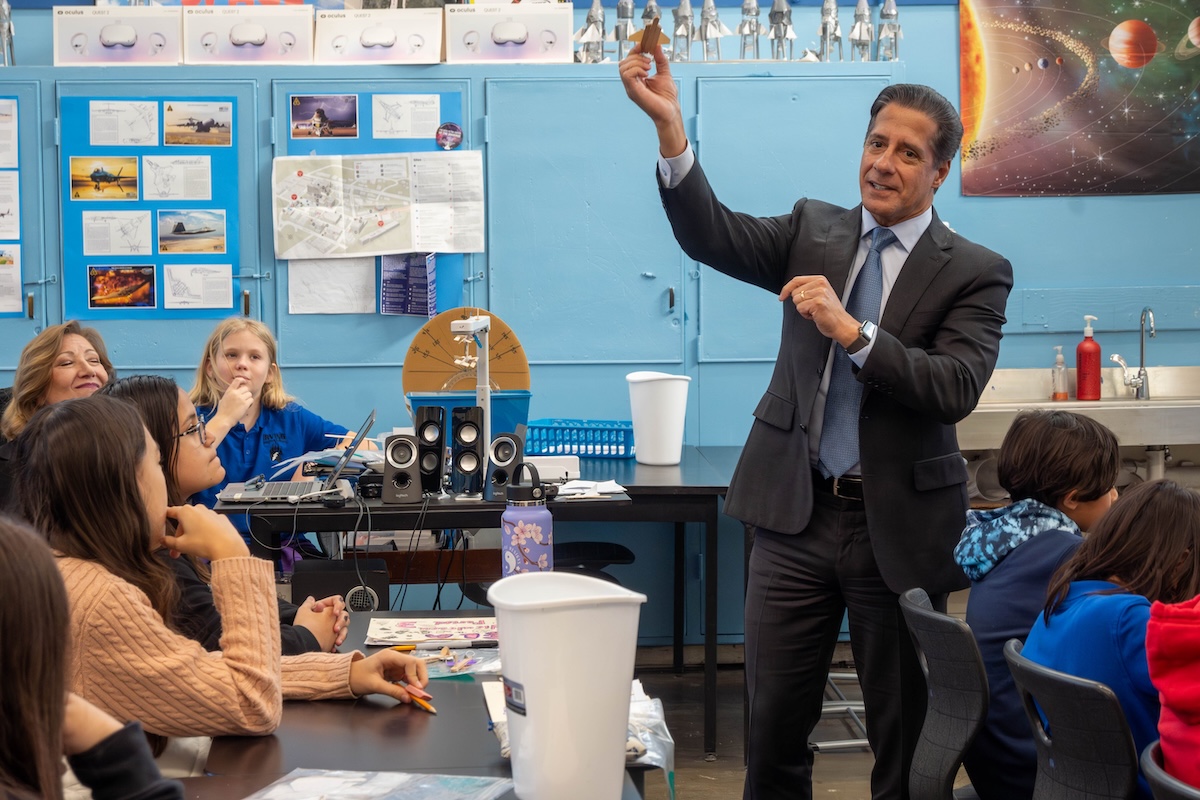To negotiate, push back, or resist?
Those are the excruciatingly difficult choices facing school districts across the nation as they face a looming threat of losing funds they receive from the federal government.
Schools districts and the states where they’re based had until April 24 to certify to the Trump administration that they had eliminated all diversity, equity and inclusion programs, defined by the Dept. of Education in extraordinarily broad terms, or risk losing federal funds.
But even before April 24, at least 16 states told the Dept. of Education that, for a range of reasons, they had no intention of meeting its expansive demands.
In addition, following a Jan. 29 Trump executive order, and another on February 5, districts risk losing “all federal funds” if in the view of the administration they “directly or indirectly support or subsidize the instruction, advancement, or promotion of gender ideology or discriminatory equity ideology.”
That includes allowing transgender girls to use girls’ bathrooms, or play on girls’ sports teams.
The Trump administration has not set any deadline for schools to meet its demands around gender identity, but appears to be serious about going after states that don’t comply – as it is doing in Maine.
Attorney General Pam Bondi has filed suit against Maine threatening to cut off all education funding to the state if it allows transgender girls to participate in girls sports. It was inspired at least in part by Trump’s unhappiness at Maine Gov. Janet Mills who had the audacity to stand up to him at a White House event earlier this year.
Two of the most outspoken school leaders in the nation are Superintendent Alberto Carvalho of Los Angeles Unified and Superintendent Alex Marrero of the Denver Public Schools. Neither appears to have been intimidated by the extraordinary pressures their districts are under.
In February, the Denver Public Schools was the first district in the nation to file suit against the Trump administration’s declaration that it would end a Biden administration policy classifying schools as sensitive locations off limits to immigration raids.
And on April 7, Homeland Security officials attempted to take custody of five students in two elementary schools in Los Angeles Unified — so far the only school district in the U.S. where this has happened — but were successfully turned away.
The fact that both California and Colorado are among the states that have rejected the demands made by Trump and the Dept. of Education raises the odds that L.A. and Denver will be among the districts that will be targeted.
Yet both Carvalho and Marrero say that losing federal funds would have a devastating impact on their districts, and the students they serve.
In an interview for the Sparking Equity podcast, Carvalho says a cutoff of federal funds of any size would be “disastrous” for his district. That’s despite the fact that federal funds comprise “only” about 10 percent of his district’s massive $18.4 billion budget.
Unlike private universities that have been the principal targets of Trump’s assault on education so far, neither his district — nor any other — has an endowment of any size to offset cuts in federal funds, let alone a multi-billion dollar one.
Carvalho notes that universities may be in a position to reject federal funds in order “to preserve their values.” But school districts like his, he says, “have to rely on the courts or on state intervention … because we have no financial cushion.”
His district, like many others in the state, are already facing huge budget shortfalls due to a range of factors, including declining enrollment and higher absenteeism after the pandemic.
Potentially hundreds of thousands of students in his district would be affected by the loss of federal funds.
“We’re talking about students with disabilities who receive support through the Individual Disabilities Education Act,” he said. “We’re talking about the food and nutrition program that feeds breakfast and lunch and snack to our kids, many of whom depend on those meals as perhaps the only food that they will eat throughout the day. We’re talking about reductions or elimination or compromising of Medicaid support systems that provides support to the medically needy amongst us.”
“These are the political pawns they (Trump administration officials) are using: the sick, the poor, the disabled, to force districts to their knees. What level of moral degradation are we trying to achieve by doing so?
“We should never be in a position of negotiating against the best interests of our kids, of our stakeholders, of our workforce,” he said. “We should not be in a position of negotiating the values that we believe in, embrace, and apply every single day.”
Carvalho says “even a temporary cessation of funding would be disastrous because the vast majority of these funds employ people — teachers, psychiatric social workers, counselors, paraprofessionals for students with disabilities — and, more importantly, disastrous to the point of compromising the level of education and services that kids by law deserve.”
For now, school districts are hoping that legal action in several states will stave off the worst. A day after the April 24 deadline, California Attorney General Rob Bonta filed a lawsuit, in collaboration with 18 other states, to block the Education Department’s plan to cut off federal funding. And judges in New Hampshire, Maryland and Washington D.C. have put a break on those efforts as well.
But these may just be temporary obstacles for Trump in his assault on public schools. The next 100 days will reveal how enduring they will be.
Louis Freedberg is director of the Advancing Education Success Initiative, and former executive director of EdSource. A version of this article first appeared in the Substack column Sparking Education Success. For more articles like these, you can sign up here.




